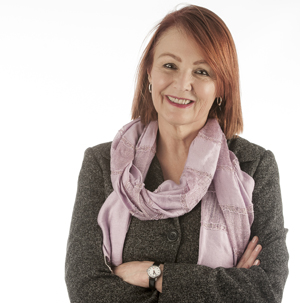UFS makes history as a second researcher – Prof Melanie Walker – receives NRF A-rating

Prof Melanie Walker
Photo: Sonia Small |
Prof Melanie Walker, Senior Research Professor at the University of the Free State’s (UFS) Centre for Research on Higher Education and Development (CRHED) has received an A1 rating from the National Research Foundation (NRF). This rating acknowledges Prof Walker as a leading international researcher – her work unequivocally recognised by peers world-wide for its high quality and wide impact.
This is the first time in our institution’s history that two A-ratings are awarded simultaneously. Prof Maxim Finkelstein from the Department of Mathematical Statistics also recently received an A2-rating in Probability and Statistics from the NRF.
“Achieving this outstanding rating,” Prof Walker says, “is not just an individual achievement. I have had tremendous personal support and rich intellectual collaborations from wonderful colleagues on the way. The award also recognises the Rector’s project to build a dynamic research culture at UFS.”
Prof Walker has been researching and writing about issues in education and higher education for over 20 years. In particular she is interested in opportunities into, through and beyond education across dimensions of dis/advantage, and how higher education contributes to building a decent society by removing inequalities in its own policies and processes.
Through her focus on capacity building – around the common theme of higher education, human development and social justice – Prof Walker is developing a dynamic cohort of new-generation scholars. Her research group of graduate students and post-doctoral fellows is drawn from countries not only in Africa, but as far afield as Finland, India and Vietnam.
Her networks attract international scholars to the UFS, who contribute to research projects, engage graduate students, and add a considerable contribution to research at our university.
In addition, Prof Walker fulfils a host of roles, which includes:
• Tier One National Research Foundation (NRF) Chair in Higher Education and Human Development.
• Vice-President of the international Human Development and Capability Association (HDCA).
• Fellow of the Academy of Science of South Africa (ASSAf).
• Honorary professor, University of Nottingham, UK.